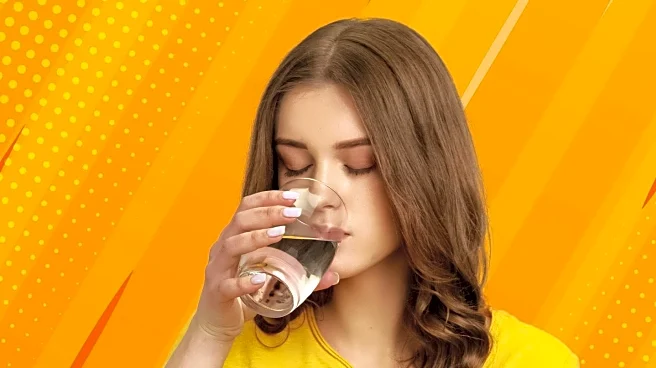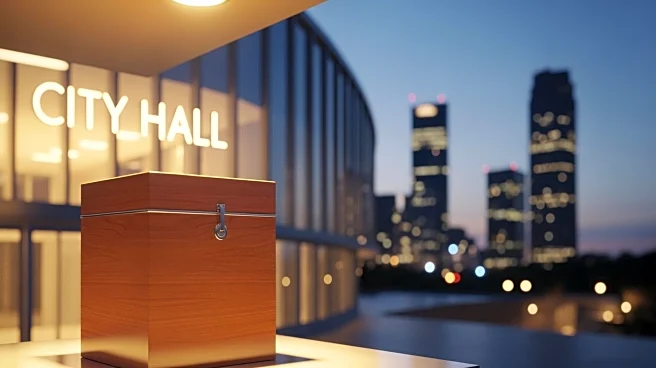What is the story about?
What's Happening?
Recent data indicates a 7% increase in alcohol consumption among Generation Z, those born between 1997 and 2012, over the past year. This shift marks a departure from their previously 'sensible' lifestyle characterized by lower alcohol intake and healthier habits. Experts suggest this change is driven by a complex blend of factors including a rebound from pandemic restrictions, socioeconomic pressures, and the glamorization of certain drinks on social media platforms like TikTok. The trend reflects a generational recalibration rather than a simple return to hedonism, with Gen Z expressing autonomy through social behaviors and coping with increased anxiety and depression.
Why It's Important?
The increase in alcohol consumption among Gen Z could have significant implications for public health and the alcohol industry. As this generation begins to assert their social agency, businesses may see a shift in consumer behavior, potentially leading to increased sales in bars and restaurants. However, this trend also raises concerns about the long-term health impacts and the potential for increased substance use disorders. Understanding these dynamics is crucial for policymakers and health professionals aiming to address the needs of this demographic and mitigate potential negative outcomes.
What's Next?
The alcohol industry may continue to target Gen Z with products that align with their cultural preferences, potentially leading to further increases in consumption. Public health campaigns may need to adapt to address the changing attitudes and behaviors of this generation, focusing on education and prevention strategies. Additionally, researchers will likely continue to monitor these trends to better understand the long-term implications for Gen Z's health and social habits.
Beyond the Headlines
The shift in Gen Z's alcohol consumption patterns may also reflect broader cultural changes, including a pushback against wellness culture and the pressures of maintaining a 'perfect' image on social media. This could lead to a reevaluation of societal norms around health and lifestyle, influencing future generations' attitudes towards alcohol and socializing.














